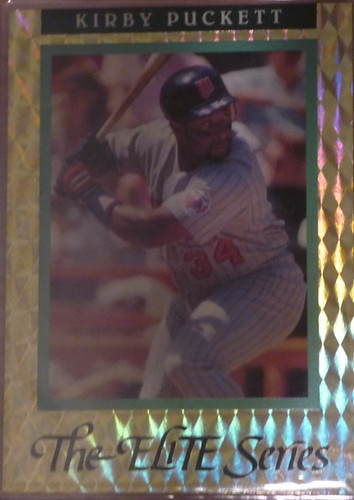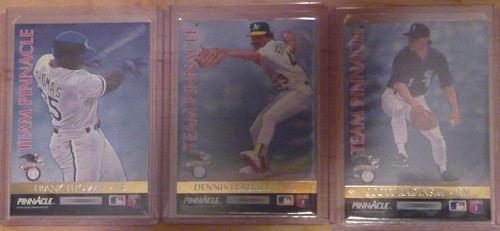What a tournament this March has brought us! VCU in the Final Four? It's kind of nice to see CAA teams achieve so much success in the tournament; while I'm not sure William and Mary will ever make the tourney in my lifetime, at least everyone will know that we accomplished a 10-20 record against quality teams.
I have always considered the NIT a loser's bracket of sorts (though amazingly, I learned just this year that there are still two LOWER tournaments, the CBI and CIT), but that wasn't always the case. In fact, not many people know this, but the NIT is actually older than the NCAA Tournament, by one year. For many seasons, there wasn't a clear consensus about which champion was the actual national champion (sort of like the AP and the BCS in college football), and in at least two years, the NCAA champion lost their FIRST games in the NIT.
Alas, the NCAA would have the last laugh, by prohibiting the rejection of NCAA tournament bids by invited teams and sounding the death knell for the hapless NIT. The Metropolitan Basketball Writer's Association (which founded the NIT) settled an antitrust suit in 2005 against the NCAA which compelled the NCAA's purchase of the NIT rights for 10 years. So in a sense, the NIT is sort of an NCAA tournament too.
And William and Mary didn't make that one either.
Wednesday, March 30, 2011
Tuesday, March 29, 2011
The Toughest Pull of 1992: '92 Donruss Elite

I have always had absolutely horrid luck with sports cards, a long tradition going on almost 20 years now. You'd think I'd stop buying them at some point, but like the penniless sap still sitting at the slot machine, I never could stop pumping nickels into the bandit in the vain hope of that one humongous score. You can stop holding your breath now, it never came. But hey, the odds are still better than Powerball; even I have my limits.
When I started collecting baseball cards in the early 90s, we were already well into the self-induced nadir of the card industry, though that's only apparent in retrospect. At the time, companies were happily overprinting tons of cards and making money hand over fist, but we'll get back to that in a second.
Anyway, I had a friend who bought two packs of 1992 Donruss from 7-Eleven and pulled the #11 Elite Series Will Clark - a card that was worth $100 at the time. This friend was the complete opposite of me; lucky in cards, lucky in love...he was even a faster runner than me. I can only fervently hope he's bald and fat now, but I digress. I was a huge Will Clark fan in that era (along with Ryne Sandberg; the 1989 NLCS was my prepubescent wet dream) and naturally, I was envious. So I bought three packs myself and got absolutely nothing. Verily, my quest commenced on that day.
Now, the Elite Series set shouldn't be that rare, in theory. At 10,000 serially numbered cards of each of 10 players (plus 5000 autographed Ripkens and 7500 Rickey Henderson "Legends" variants), there are plenty of copies to go around. Some current card sets don't even produce that many entire BOXES. But Donruss printed so many damn cards that the Elite per-pack ratio turned out to be quite low. How low, exactly, in the absence of officially stated odds? It took me ten years to find out.
Needless to say, buying individual packs here and there in 1992 yielded nothing. It always bugged me, so when I was in college and had some disposable income, I bought two entire boxes off eBay. Nothing. I then bought FOUR boxes...again, zip.
I will spare you the entire sordid process, but suffice it to say my credit card took a beating as I futilely chased my white whale. I finally went all-in on an entire case about four years ago (that's 20 boxes), and pulled the Rickey Henderson Legends card. Then I promptly lost it. Oh well, the journey is sweeter than its end. I purchased another case last week--that's how rarely the cases turn up--and pulled the Puckett pictured above. So based on my sample (which is admittedly too small to make solid conclusions, but you have to start somewhere), the odds of pulling an Elite were 1 in 720 packs. Again, those are just my observed odds, but it's still eye-poppingly scarce.
In comparison, the 1992 Pinnacle Team Pinnacle set, which was also considered a super-premium insert set somewhat comparable to the Elite at the time, appears to be as common as dirt. The stated odds are 1 in
UPDATE: I bought two more boxes of 1992 Pinnacle baseball and pulled squat, so my observed rate is now down to 1:48 packs. Maybe the odds are correct but it's just horrendously collated...

Monday, March 28, 2011
Best Job in the World: Business Analyst
Why? Because just like a meteorologist, you can be dead wrong and go to work the next day like nothing ever happened. In my job if I was 100% dead wrong about a prediction, I wouldn't be employed that much longer. But when you're a business analyst, nobody cares, even when you renege on your earlier views just two days later. Case in point: the new Nintendo portable system, the 3DS:
March 26, 2011: “Consumers are going to have to expect for at least the first year that possibly finding a 3DS might be difficult,” says analyst Jesse Divnich.
March 28, 2011: IndustryGamers spoke to some analysts, and they actually weren't surprised by the supply situation. "With an estimated 1.9MM units shipped into the NA/EU channel, I wouldn't anticipate any stock-outs," EEDAR's Jesse Divnich told us.
Seriously dude, it's been TWO DAYS. Yes, you were surprised, stop lying.
Would YOU trust this guy?

Wednesday, March 16, 2011
Offering One Trillion Dollars for Perfect Bracket!*
Once again, this year Yahoo is offering 1 million dollars to any lucky fan who is able to complete a perfect NCAA tournament bracket. Of course, they never have (and most assuredly never will) pay out the prize; the odds of actually achieving the feat are so infinitesimally low - 1 in 9 quintillion plus some change - that chances are, shall we say, fairly good nobody will ever collect in the course of human existence. Even if we count #1 and #2 seeds as first round locks, the odds are still only 1 in 36 million billion.
So given that, why does Yahoo only offer a measly 1 million dollars? They might as well offer a trillion dollars, like I am! I'm sure any insurance company would be happy to insure any ludicrous payout amount for just enough premium for one day of breakroom donuts, because that shit is just about 100% free money.
*Payout is in Zimbabwe Dollars at the USD exchange rate of 03/16/11, approx. $80.80 USD. I reserve the right to assume that anyone who files a claim is lying. All rulings are final.
So given that, why does Yahoo only offer a measly 1 million dollars? They might as well offer a trillion dollars, like I am! I'm sure any insurance company would be happy to insure any ludicrous payout amount for just enough premium for one day of breakroom donuts, because that shit is just about 100% free money.
*Payout is in Zimbabwe Dollars at the USD exchange rate of 03/16/11, approx. $80.80 USD. I reserve the right to assume that anyone who files a claim is lying. All rulings are final.
Saturday, March 12, 2011
Why I'd Never Live in Japan...or California
Of all the natural disasters, I think I fear earthquakes the most. I've just always conceptually regarded the ground both symbolically and practically as a bastion of stability, so it disturbs me to think that something I've always relied on could be so unstable.
Being such an earthquake-prone (and generally prosperous) country, Japan did extraordinarily well considering the sheer magnitude of their recent earthquake. Apparently they had earthquake response plans in place, which is more (I think) than I can say for most of the United States.
But with that said, Japan seems to be one of the most unfortunately located countries in the world. As most people know, the most massive earthquakes generally occur via movement at the tectonic plate boundaries. California, of course, has the boundary between the North American and Pacific plates running up its entire coastline, making that area very seismically active.
But as bad as that is (and that is BAD, because I love California), poor Japan. The Tokyo area lies on the intersection of FOUR plates:

(The 8.9 Sendai quake, I believe, was due to movement between the Pacific and Okhotsk Plates)
Anyway, the thing about earthquakes is that they are not really random. In fact, they are reasonably predictable (at least in the grand cosmological scheme of things), so lots of areas are due for an earthquake. Vancouver, San Francisco, L.A., etc.
Of course any slight variance could mean +50 years and thus probably out of the scope of my lifetime. But it still weirds me out - like living on top of a powder keg.
Being such an earthquake-prone (and generally prosperous) country, Japan did extraordinarily well considering the sheer magnitude of their recent earthquake. Apparently they had earthquake response plans in place, which is more (I think) than I can say for most of the United States.
But with that said, Japan seems to be one of the most unfortunately located countries in the world. As most people know, the most massive earthquakes generally occur via movement at the tectonic plate boundaries. California, of course, has the boundary between the North American and Pacific plates running up its entire coastline, making that area very seismically active.
But as bad as that is (and that is BAD, because I love California), poor Japan. The Tokyo area lies on the intersection of FOUR plates:

(The 8.9 Sendai quake, I believe, was due to movement between the Pacific and Okhotsk Plates)
Anyway, the thing about earthquakes is that they are not really random. In fact, they are reasonably predictable (at least in the grand cosmological scheme of things), so lots of areas are due for an earthquake. Vancouver, San Francisco, L.A., etc.
Of course any slight variance could mean +50 years and thus probably out of the scope of my lifetime. But it still weirds me out - like living on top of a powder keg.
Subscribe to:
Posts (Atom)